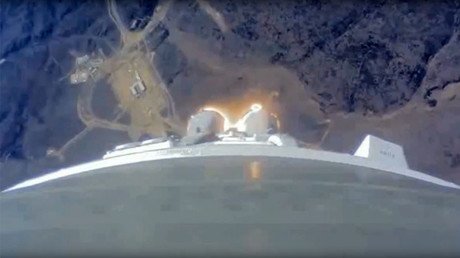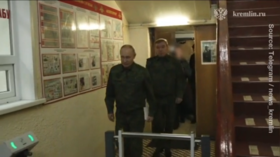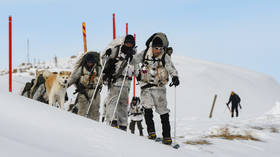Satellites launched from new Russian spaceport fail to reach target orbit
Contact with 19 satellites, including Russia’s Earth observation Meteor-M 2.1, has been lost following a launch of a Soyuz rocket from Vostochny Cosmodrome, according to Roscosmos.
The three-stage unmanned Soyuz-2.1b carrier rocket blasted off from the new spaceport in the Russian Far East at 8:41am Moscow time (5:41am GMT) on Tuesday. The rocket carried the Meteor-M 2.1 weather satellite and the secondary payload of 18 smaller satellites from other countries, including Canada, Norway, Japan and the US.
While the main satellite apparently reached intermediate orbit, contact with it was then lost. "During the first planned communication session with the satellite, it was not possible to establish a connection due to its absence in the target orbit," Russia's space corporation said in a statement, adding that further information is currently being analyzed.
The Russian Meteor satellite was aimed at monitoring the climate, controlling emergency situations and providing data for weather forecasts. The satellite can provide both global and local images of clouds, as well as data on ice and snow coverage conditions. Information received from the satellite could also have been used to monitor Earth's radiation balance.
Mixed messages circulated in the media on the fate of the satellites. They could have fallen into the ocean, Interfax news agency reported, citing sources. The same version has been voiced by RIA Novosti, quoting sources in the space industry, who added that whatever happened to the satellites, they may already be considered "space waste." The satellites could also have reached the wrong orbit.
READ MORE: Investigators launch new embezzlement probe into construction of Russian cosmodrome
The launch – the second ever from the new spaceport – happened more than a year after the first rocket, Soyuz-2.1a, took off from the Vostochny Cosmodrome in April 2016. Construction work at the site continues as additional launch pads are being built. The first manned mission to the International Space Station (ISS) to be launched from Vostochny is not scheduled before 2023.














